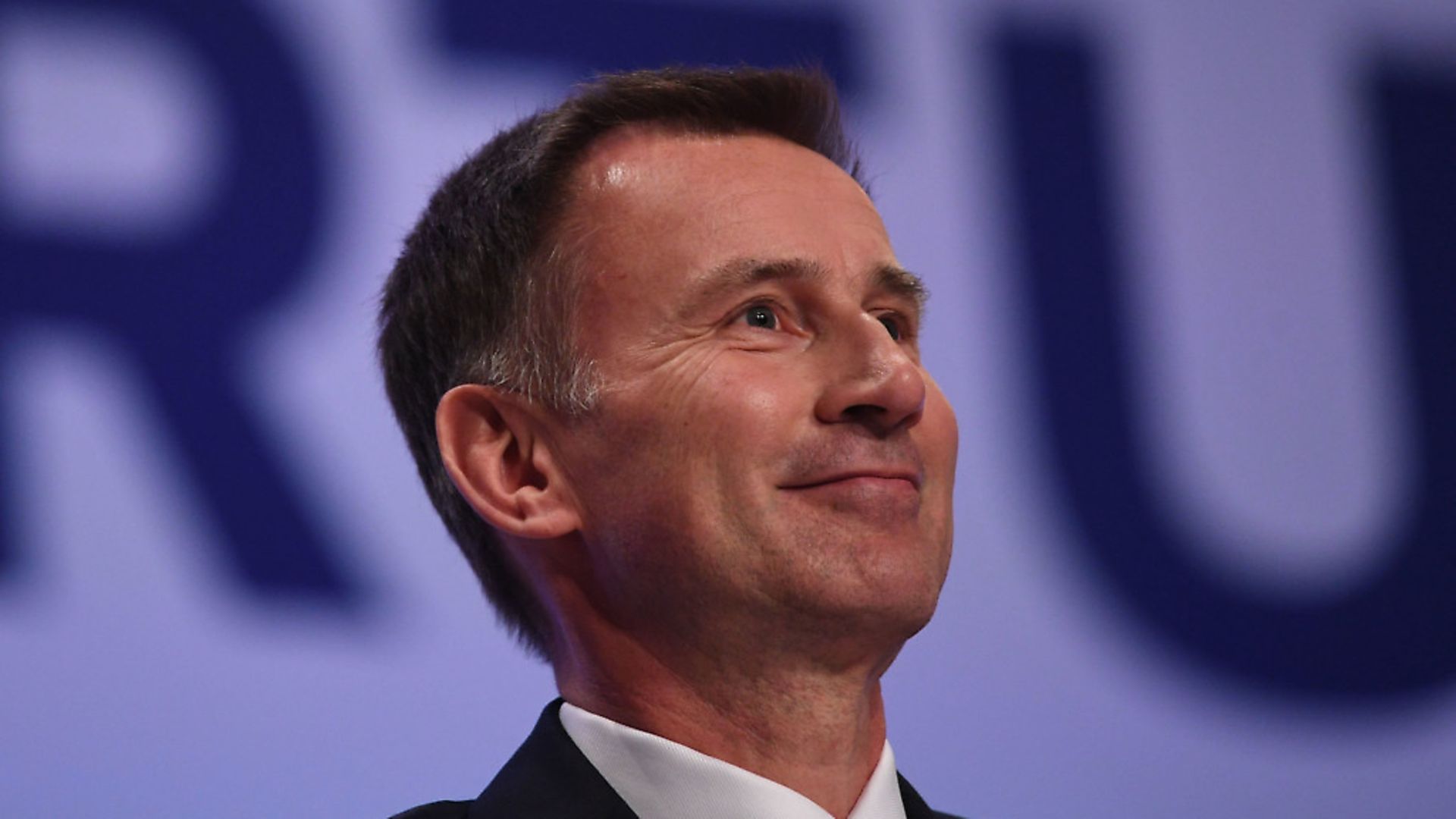
Britain’s withdrawal from the EU could be delayed if a Brexit deal is not agreed until late March, the foreign secretary has said.
Jeremy Hunt said it was ‘difficult to know’ if negotiations with Brussels would run until the 11th hour, but confirmed that ‘extra time’ may be needed to pass crucial legislation.
His comments came as the Institute for Government (IFG) said the UK is unprepared for a no-deal exit as there would be ‘extremely damaging’ disruption.
The think tank predicted that in eight out of 11 broad policy areas, including health and borders, the government would be unable to avoid ‘major negative impacts’.
IFG director Bronwen Maddox told the BBC the UK is ‘not ready for no deal’, saying: ‘The disruption from no deal – simply from the lack of preparation – would be extremely damaging. It cannot be dismissed as a mere blip.’
Hunt told Radio 4’s Today programme: ‘I think it is true that if we ended up approving a deal in the days before 29 March then we might need some extra time to pass critical legislation, but if we are able to make progress sooner then that might not be necessary.
‘We can’t know at this stage exactly which of those scenarios would happen.’
He said it was still possible to reach a deal as a consensus in Parliament had emerged, and added that the government was not ruling out any potential solutions, including a technological solution to solve the Irish border question.
The Times reported the prime minister is preparing to woo rebel Labour MPs into supporting her deal with an injection of cash into deprived areas which voted Leave in the 2016 referendum, including former mining communities.
John Mann, a Labour MP who rebelled to support the government in a key Brexit vote on Monday which would have paved the way to delay Britain’s exit from the EU, urged Theresa May to ‘show us the money’.
Mann tweeted in response to the story in The Times: ‘Not quite. Show us the money. A fund of sufficient size to transform our communities. Our areas voted leave and it is time that we had the investment we need.’
He added: ‘Our areas need to see a fund established that is transformative. The forgotten areas of Britain who voted leave want jobs, rights and investment.’
May is due to report back to Parliament on her negotiations with the EU on February 13, with a further series of votes by MPs expected the following day.
Reports have suggested she could face a wave of resignations by pro-Remain ministers if she does not at that point finally rule out a no-deal Brexit.
Business secretary Greg Clark, who strongly opposes a no-deal break, said he would do ‘everything that I can’ to prevent a ‘disorderly’ withdrawal from the EU.
But May’s intention to return to Brussels to reopen negotiations on the controversial Northern Ireland backstop was met with a firm rebuff from European leaders.
In a telephone call last night, Irish premier Leo Varadkar told her recent events only underlined the need for a backstop that was ‘legally robust and workable in practice’.
The prime minister also spoke to European Council president Donald Tusk in what was described as an ‘open and frank’ conversation, according to reports from Brussels.
Afterwards, he tweeted: ‘The EU position is clear and consistent. The Withdrawal Agreement is not open for renegotiation.’
May’s strategy secured a rare show of unity from the warring wings of the Conservative Party – as well as her allies in the DUP – in the Commons on Tuesday.
However, Clark suggested she needed to find an agreement that could command broader support across the House if it was to survive.
He told ITV’s Peston programme: ‘Not only do I think it is necessary for people to come together across partisan lines, if we are properly to move forward I don’t think we should aim for this deal to pass by a majority of one or two. I would like to a substantial majority for a deal.’










